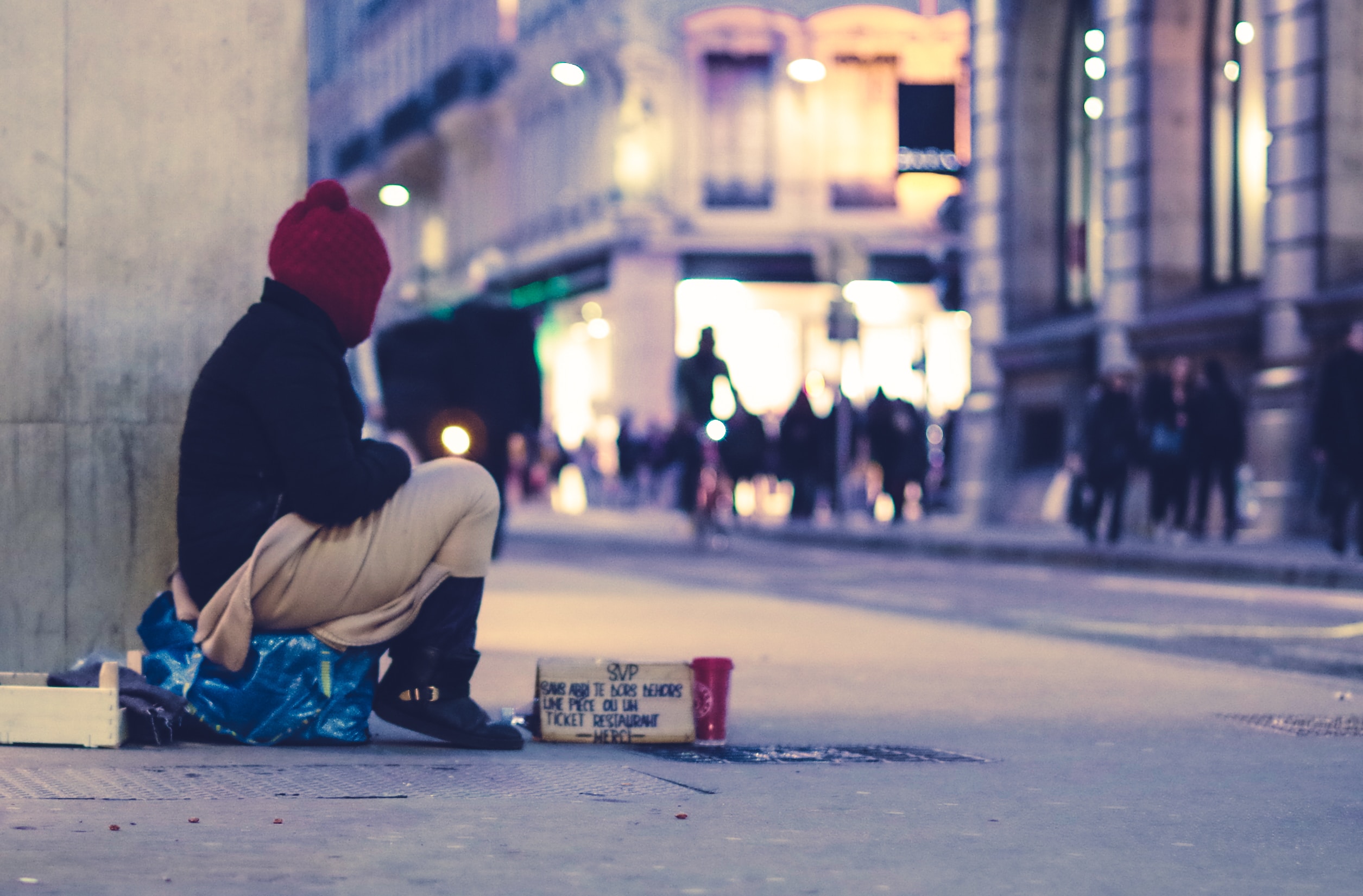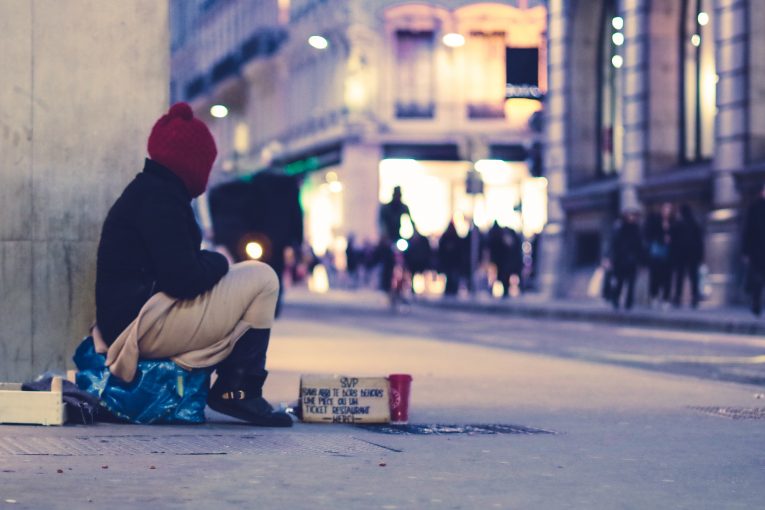
By David M. Greenwald
Executive Editor
Washington, CA – The Supreme Court handed down a long-awaited decision in the case of Grants Pass v. Johnson which allows governments to fine and arrest unhoused people who have no other choice but to sleep outside.
The case originated from the Oregon city that passed various ordinances barring people from sleeping outside in public using a blanket, pillow, or even a cardboard sheet to lie on.
In Grants Pass, Oregon, the homeless could be forced to pay hundreds of dollars in fines and even receive jail time for sleeping outside, even when the city lacked sufficient shelter beds.
“Oregon has one of the highest and growing rates of homelessness and in a time when becoming houseless could happen to anyone, the Supreme Court decision has effectively given cities and states the power to jail or fine people for the human need to sleep,” said Kelly Simon, legal director of the ACLU of Oregon.
“Now more than ever, it’s critical for local governments to actually invest in real solutions like building housing that is affordable to people of all income levels and  increasing access to support services and medical care. Arresting and punishing people will only make matters worse in Oregon and other communities.”
increasing access to support services and medical care. Arresting and punishing people will only make matters worse in Oregon and other communities.”
Justice Sotomayor wrote in her dissent, “Sleep is a biological necessity, not a crime. For some people, sleeping outside is their only option. The City of Grants Pass jails and fines those people for sleeping anywhere in public at any time, including in their cars, if they use as little as a blanket to keep warm or a rolled-up shirt as a pillow. For people with no access to shelter, that punishes them for being homeless. That is unconscionable and unconstitutional. Punishing people for their status is ‘cruel and unusual’ under the Eighth Amendment”
“It is hard to imagine a starker example of excessive punishment than fining and jailing a person for the basic human act of sleeping,” said Scout Katovich, staff attorney in the Trone Center for Justice and Equality. “As Justice Sotomayor’s dissent powerfully acknowledged, sleep is a biological necessity, not a crime. We cannot arrest our way out of homelessness, and we will continue litigating against cities that are emboldened by this decision to treat unhoused people as criminals.”
The decision was immediately blasted by homeless and housing advocates who see the decision as criminalizing homelessness. Previous courts such as the 9th Circuit had argued that such remedies were unconstitutional unless there were available beds at homeless shelters to house people who were arrested.
“Anti-camping and lodging ordinances result in citations, arrests, and forced displacement for the inescapably human act of taking up space. These ordinances cause essential belongings, including items necessary to basic human survival, to be confiscated and destroyed. And they severely curtail people’s ability to pursue economic and housing security,” responded Terese Howard of House Keys Action Network in Denver, CO.
According to Paul Boden of WRAP (Western Regional Advocacy Project), “Criminalizing poverty and homelessness not only fails to address systemic causes of mass homelessness, it also exacerbates both the underlying structures of oppression that continue to plague our society, racism and classism.”
“We want to see everyone have a safe and decent place to call home. Homelessness kills, housing saves lives—these protections against inhumane policing (unfavorable insert: were) are critical to forcing local government to solve the crisis,” said Jennifer Friedenbach of the Coalition on Homelessness, San Francisco.
One exception was the response of Governor Newsom, who applauded the ruling.
“Today’s ruling by the U.S. Supreme Court provides state and local officials the definitive authority to implement and enforce policies to clear unsafe encampments from our streets. This decision removes the legal ambiguities that have tied the hands of local officials for years and limited their ability to deliver on common-sense measures to protect the safety and well-being of our communities,” California Governor Gavin Newsom said in a statement.
The Governor has consistently called for clarity from the courts and previously filed a separate amicus brief requesting the United States Supreme Court to hear this case.
He added, “California remains committed to respecting the dignity and fundamental human needs of all people and the state will continue to work with compassion to provide individuals experiencing homelessness with the resources they need to better their lives.”
However, the Governor was indeed the exception.
The Lawyers’ Committee for Civil Rights of the SF Bay called the ruling, “a stark departure from established legal precedent regarding the Eighth Amendment’s prohibition on cruel and unusual punishment.”
“Today’s shameful decision guts a key civil rights protection for unhoused people, but it will not derail our lawsuit against San Francisco, which has policies and an ordinance requiring the city to offer shelter before clearing encampments,” said John Do, senior attorney at the ACLU of Northern California. “ Because the city has a history of not keeping its word, we’ll be watching closely. San Francisco should not interpret this ruling as a green light to unlawfully crack down on unhoused residents simply for being unable to afford housing, and instead must commit to moving more people off the streets and into affordable housing or emergency shelter.”
Grants Pass addressed only one of 13 claims in Coalition on Homelessness v. City of San Francisco, which challenges the city’s costly and ineffective practice of destroying unhoused individuals’ belongings, and citing, arresting, and moving them without offering real alternative shelter.
The group noted that The Grants Pass case “did not address the city’s pattern of destroying property, its failure to provide accommodations for people with disabilities, nor whether the methods used to clear encampments unlawfully endanger people’s lives. These claims remain unresolved and will be at issue when the case goes to trial in May 2025.”
“We will continue to fight to ensure that San Francisco follows the law and its own policies in safeguarding the rights and property of unhoused residents,” said Nisha Kashyap, Program Director of Racial Justice at the Lawyers’ Committee for Civil Rights of the San Francisco Bay Area. “This includes upholding critical Fourth Amendment rights to be free from property destruction by the government.”
They argued, “Allowing cities to cite and arrest unhoused people for sleeping outside will funnel vulnerable individuals into the criminal legal system. Even if they ultimately prevail in court, the damage will be done. Being arrested, or having a criminal record, warrant, or unpaid court fines can trap people in homelessness by making it more difficult for them to secure public benefits, employment, and permanent housing.”
“Cities should not punish people for being poor,” said Jennifer Friedenbach, executive director of the Coalition on Homelessness. “While the most recent data shows that the number of people living on the street in San Francisco has decreased since we filed our lawsuit, homelessness has risen overall in recent years because people are struggling to pay rent and make ends meet. The solution is, and has always been, safe and affordable housing. But instead of tackling root causes, elected leaders have chosen to penalize residents who have nowhere else to go.”
“This ruling will have a devastating effect on the rights and wellbeing of the hundreds of thousands of people denied housing in the United States,” said the Center for Constitutional Rights. “Rather than provide safe shelter to those who need it, hundreds of local governments have criminalized homelessness via laws similar to the Oregon ordinances upheld by the Supreme Court, which, to be clear, put humans in jail because they cannot afford shelter. In violation of the 8th Amendment prohibition on cruel and unusual punishment, these laws target status crimes, punishing people for who they are.”
They detailed in an amicus brief the Center for Constitutional Rights submitted on behalf of 46 groups, arguing that “the ruling will inflict disproportionate harm on LGBTQIA+ people, because they are unhoused at extremely high rates due to discrimination, bias, and family rejection.
“They added, “Amid a national affordable housing crisis, the ruling affirms the prevailing punitive approach to homelessness, which treats unhoused people as threatening intruders to be controlled and exiled, rather than fellow citizens and residents who simply need shelter.”
“We are immensely disappointed by the Supreme Court’s decision holding that the U.S. Constitution does not protect homeless people against cruel and unusual punishment, even when they have no choice but to sleep in public using things like blankets or pillows,” the group Local Progress said.
They added, “We are in the midst of a catastrophic housing crisis where rents are soaring and people are struggling to stay in their homes. Millions of people in the United States are just one paycheck away from homelessness, and the cruelty of this decision will only make life harder for people who are forced to survive outside.
“Despite claims from the Supreme Court, this does nothing to make our jobs as local elected officials easier. This will only break trust between us and the communities we serve and make it more difficult for us to address homelessness.”
The American Civil Liberties Union submitted a friend-of-the-court brief arguing that punishing unhoused people for sleeping outside when they lack access to shelter violates the Eighth Amendment protection against cruel and unusual punishment.
As the brief highlights, the original intent and meaning of the Eighth Amendment and its application in more than a century of Supreme Court cases make clear that the government cannot impose punishment that is disproportionate to the crime.
The brief goes on to argue that Robinson v. California, which ruled that criminalizing a person’s status is cruel and unusual punishment and was relied upon by the lower courts in Grants Pass, is consistent with this proportionality principle. Applying the same proportionality principle, the brief stated, punishing unhoused people for sleeping in public when they have no other choice violates the Eighth Amendment.
“Everyone in California deserves a safe, dignified place to live,” said Kath Rogers, staff attorney at ACLU of Southern California. “This Supreme Court ruling — decimating a half century of precedent — continues in the shameful tradition of choosing to remove unhoused people from public view rather than provide our community members with what they actually need: affordable housing.”
“Criminalization does not solve homelessness; it only deepens the cycle of instability and trauma for young people. Instead of focusing on punitive measures, cities need to invest in services that will prevent trafficking, exploitation, and homelessness, and save them millions in remediation. Young people need safe and stable housing, and community-based programs that help them to heal and thrive after surviving exploitation,” Jennifer Lyle, MISSSEY Executive Director, a group based in Oakland.
Daniela Gilbert, director of the Redefining Public Safety initiative at the Vera Institute of Justice added, “Today’s ruling reflects a fundamental misunderstanding of the issue of homelessness and how to solve it. Local governments’ overreliance on policing is an inherently reactive and ineffective approach to addressing homelessness. If we as a society are serious about reducing the number of people who are unhoused, we need to move past the criminalization of survival activities and focus on proven, effective solutions that will create stronger and safer communities.”
They added, “Instead of imposing criminal penalties on people experiencing homelessness, we need to increase civilian-staffed and community-centered responses, services, and infrastructure; ensure that the 21st century public safety workforce has the training and resources needed to connect people to care and support; commit to a Housing First approach; and rapidly invest in expanding affordable housing.”




I don’t often agree with him but Newsom has this right.